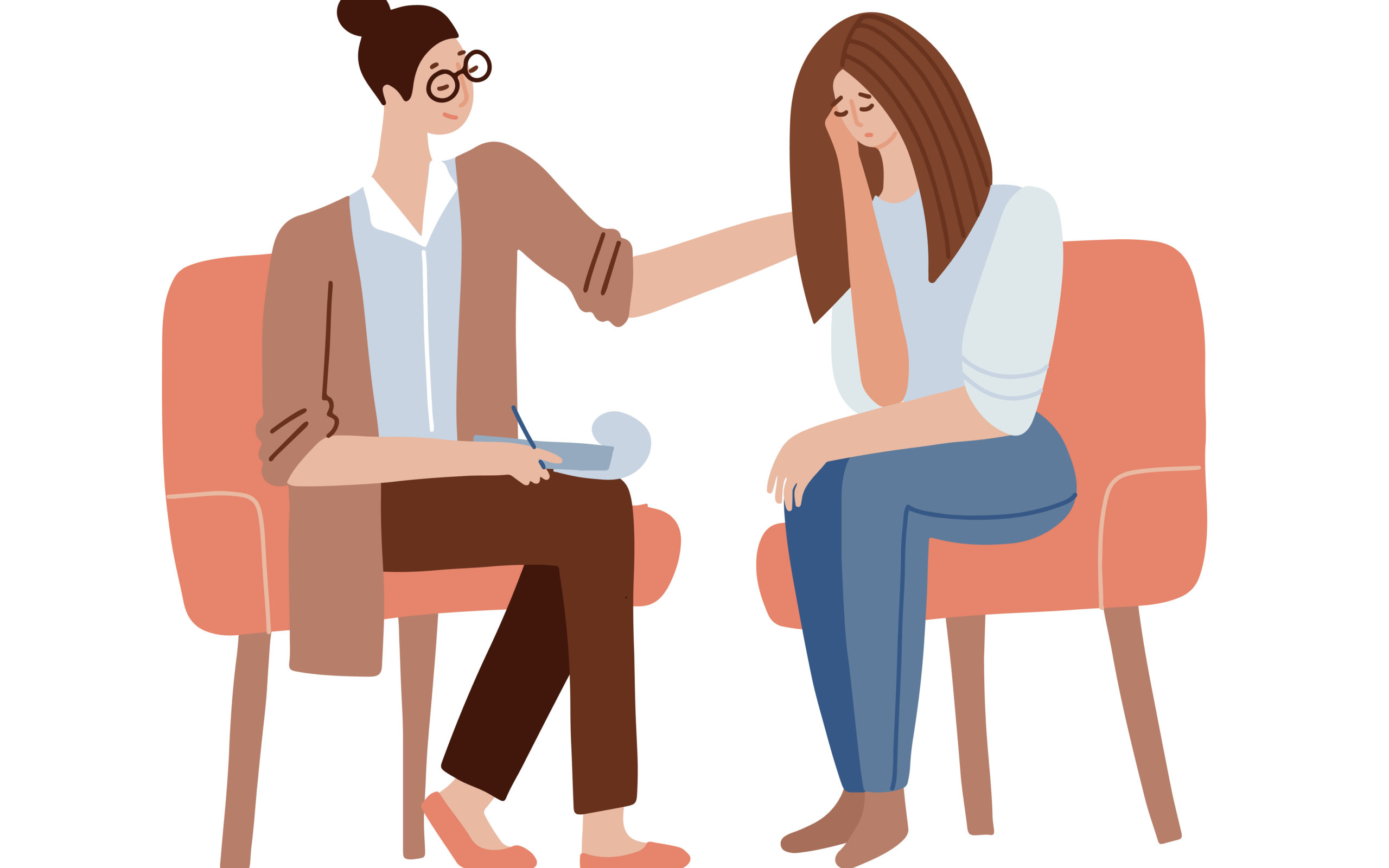Discover the Best Psychologist in Delhi for Effective Mental Health And Wellness Assistance
Discover the Best Psychologist in Delhi for Effective Mental Health And Wellness Assistance
Blog Article
Psych Treatment: A Comprehensive Overview to Techniques and Results

Cognitive-Behavioral Treatment
Cognitive-Behavioral Treatment (CBT) is a commonly used psychotherapeutic approach that focuses on identifying and modifying inefficient reasoning and actions patterns. Created in the 1960s by Aaron T. Beck, CBT integrates cognitive and behavioral theories to deal with different psychological health and wellness issues, including anxiety, anxiousness, and stress-related conditions.
Strategies such as cognitive restructuring, exposure treatment, and skill-building exercises are frequently employed. Cognitive restructuring entails tough and changing unfavorable thought patterns, while exposure treatment aims to lower concern and anxiety through steady direct exposure to feared objects or situations.
Evidence-based research study supports the efficacy of CBT for a vast array of psychological problems - Best Psychologist in Delhi. Its focus on skill purchase and self-help strategies encourages customers to continue progress independently after treatment concludes. The versatility and effectiveness of CBT have actually made it a keystone in contemporary psychotherapeutic practice
Psychodynamic Methods
Rooted in the early theories of Sigmund Freud, psychodynamic strategies focus on exploring the unconscious mind and its influence on behavior and emotions. These techniques aim to reveal hidden ideas and sensations that might be driving maladaptive actions and psychological distress. Central to this technique is the concept of inner problem, frequently stemming from unresolved past experiences, particularly those from childhood.
Therapists making use of psychodynamic techniques employ several crucial techniques, consisting of cost-free organization, where people are encouraged to speak freely to reveal unconscious product, and dream analysis, which analyzes the hidden material of dreams. Additionally, the exploration of transference and countertransference dynamics within the restorative connection is essential. These communications can give understandings into the patient's interior globe and relational patterns.
Psychodynamic treatment is generally longer-term compared to various other modalities, providing a thorough and deep understanding of the individual's subconscious. Study shows that it can be particularly efficient for intricate mental health and wellness problems, such as character disorders and chronic anxiety. By cultivating self-awareness and emotional understanding, psychodynamic therapy seeks to bring subconscious material to awareness, enabling individuals to accomplish meaningful and lasting adjustment in their lives.
Humanistic Methods
Structure on the structures laid by psychodynamic approaches, humanistic methods provide an unique viewpoint focused on private possible and self-actualization. Coming from the mid-20th century, these techniques prioritize the intrinsic goodness and development potential of individuals, emphasizing an all natural view of human experience. Trick numbers such as Carl Rogers and Abraham Maslow have considerably influenced this healing strategy, which encompasses methods like client-centered therapy and Gestalt therapy.
Client-centered treatment, developed by Rogers, plays a crucial function in humanistic methods. The therapist's duty is more of a facilitator than an browse this site authority, urging news customers to harness their internal resources for healing.
Gestalt therapy, an additional crucial humanistic method, emphasizes present minute understanding and the integration of mind and body. By concentrating on the "below and now," clients acquire greater understanding right into their present feelings and behaviors. Strategies such as role-playing and led visualization are typically utilized to help clients gain a much deeper understanding of themselves, inevitably resulting in enhanced self-awareness and satisfaction.
Integrative Treatments
Integrative treatments stand for a synthesis of various healing strategies customized to fulfill the unique requirements of each customer. This method recognizes the intricacy of human psychology and the complex nature of mental wellness issues. By incorporating elements from different institutions of psychiatric therapy-- such as cognitive-behavioral therapy (CBT), psychodynamic treatment, and humanistic approaches-- integrative treatments use a more all natural and adaptable therapy paradigm.
Practitioners of integrative treatment assess each customer's certain needs, signs, and personal history to devise a tailored treatment strategy. This personalized method enhances the potential for therapeutic success by addressing the origin of mental distress and promoting total well-being. Techniques might include mindfulness exercises, cognitive restructuring, and psychological processing, each chosen to target different aspects of the customer's problems.
Moreover, integrative therapies highlight the restorative relationship, checking out the client-therapist bond as a vital part of reliable treatment. This partnership promotes a helpful environment where customers really feel risk-free to check out and address their problems. The flexibility of integrative treatments makes them suitable for a broad array of conditions, consisting of anxiety, clinical depression, trauma, and social problems, thereby raising their applicability and efficiency in diverse clinical setups.

Measuring Therapy Outcomes
Evaluating the effectiveness of psychiatric therapy is critical for both clients and clinicians to make certain that the treatment is generating the wanted results. To accomplish this, different methods and tools are used to determine therapy results methodically. Standardized assessment tools, such as the Beck Clinical Depression Stock (BDI) and the Generalized Anxiousness Disorder 7 (GAD-7), supply measurable data on signs and symptom severity and changes over time.
Along with standardized tools, qualitative methods like customer self-reports and scientific interviews supply valuable insights into the individual experiences and perceived progress of customers. Consistently set up examinations, normally at the start, midpoint, and end of treatment, aid in tracking the trajectory of improvement or identifying locations requiring adjustment.
Outcome measurement is not limited to sign decrease; it additionally incorporates useful enhancements in life, such as better interpersonal relationships, increased job performance, and boosted total well-being. Modern developments in digital health have actually presented mobile apps and on the internet systems that facilitate real-time monitoring and responses, better improving the evaluation procedure.
Eventually, a thorough technique to measuring therapy end results ensures that therapeutic treatments work, efficient, and tailored to satisfy the specific demands of clients, therefore maximizing the general therapeutic experience.
Verdict
Humanistic methods focus on try this web-site personal growth and self-actualization, while integrative treatments integrate multiple methods for tailored therapy strategies. Evaluating therapy end results via qualitative methods and standardized assessments makes sure a detailed understanding of performance, ultimately directing customers towards enduring mental health enhancements.
From the organized strategy of Cognitive-Behavioral Treatment (CBT) to the deep expedition of the subconscious in psychodynamic therapy, each technique brings unique advantages. Its emphasis on ability acquisition and self-help methods encourages clients to continue progress separately after treatment wraps up (Best Psychologist in Delhi). Key figures such as Carl Rogers and Abraham Maslow have actually substantially influenced this therapeutic technique, which encompasses approaches like client-centered treatment and Gestalt therapy

Report this page